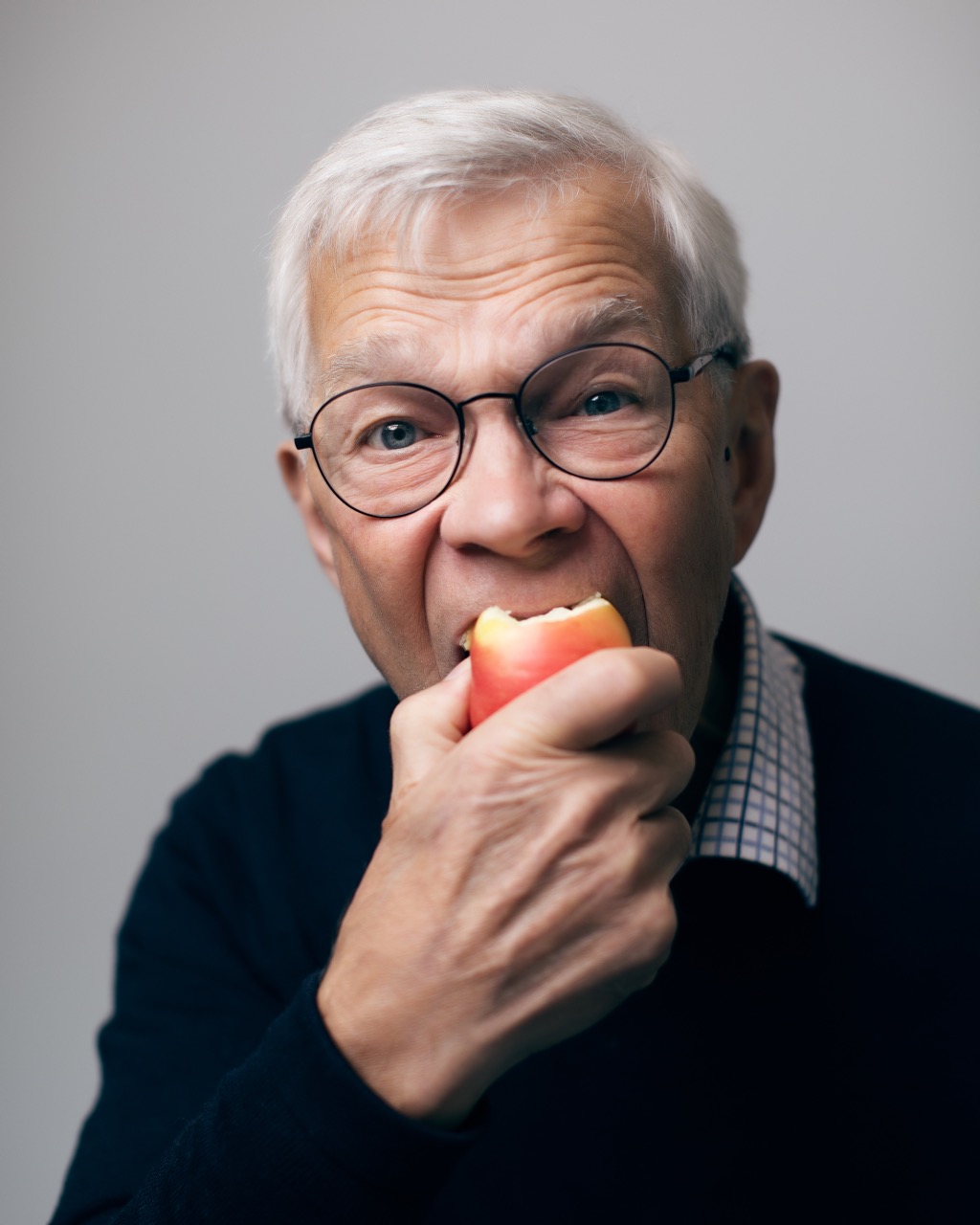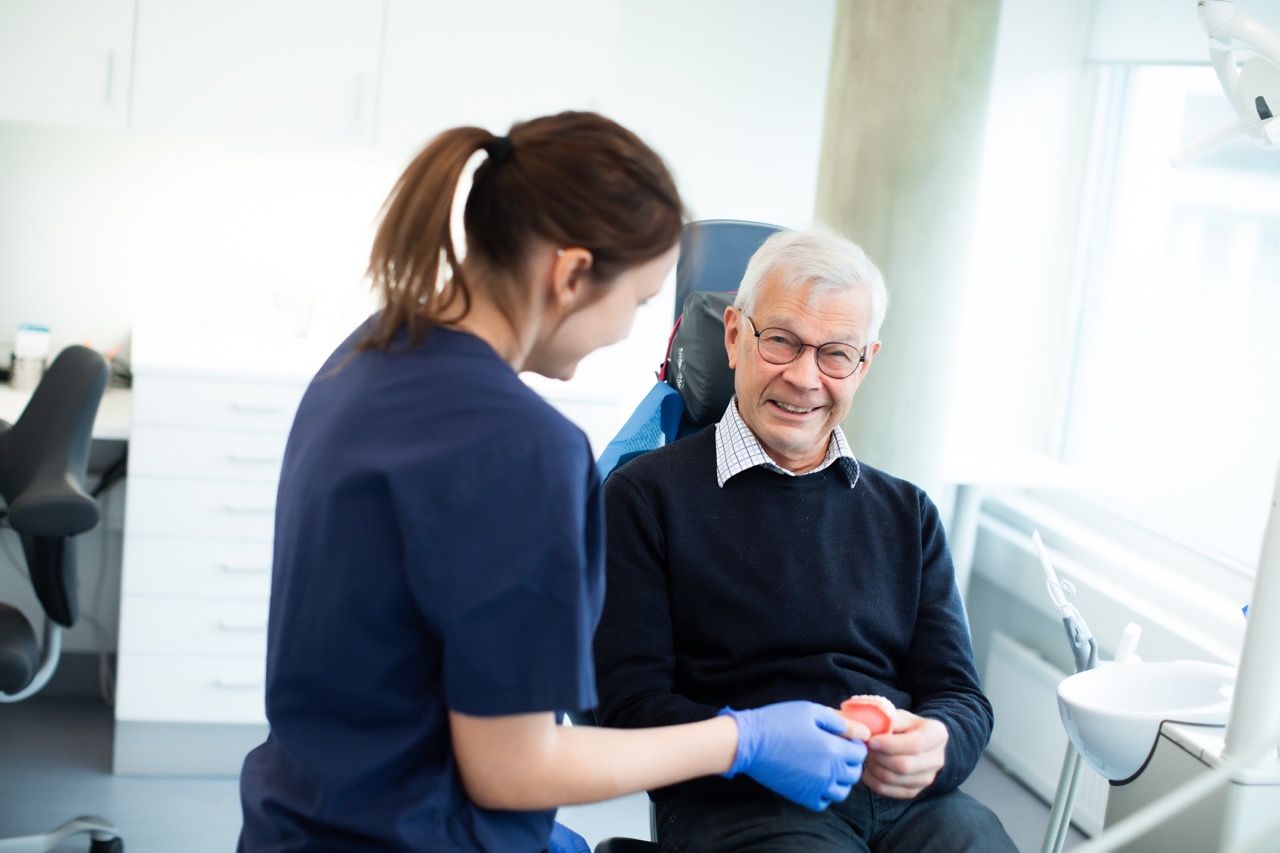Dental care for the elderly
Information for seniors about oral health, drugs, diet and rights.

As we get older, we often need an extra effort to maintain good oral and dental health.
Oral Hygiene
It is desirable to have good oral and dental health for as long as possible, and with good care, teeth last a lifetime. Tu routines in terms of diet, cleaning your teeth and using fluoride are essential to maintaining good dental health.
Anyone who has their own teeth needs brushing with fluoride toothpaste morning and evening; preferably after breakfast and after the last meal of the day. Be systematic and make sure that all spaces and the back of the teeth are also clean. Here, dental floss, toothpicks or interdental brushes can be great aids. Also remember to brush your tongue.
If you have a denture (denture), for all or some of your teeth, it should be removed from your mouth every night. Purification of the prosthesis should be done once a day, to avoid infections from bacteria and fungi, with a suitable toothbrush (denture brush) and soap (zalo). Toothpastes often contain abrasives that over time can make dentures harder to keep clean.
Your dental health determines whether you need other forms of fluoride and/or other types of aids in addition. Talk to your dentist/dental hygienist about how best to keep your teeth clean and what you need from fluoride supplements.
Diets
Small eating and drinking sweet and sour between meals is the most common cause of tooth decay. It is better to have 4—5 light meals than few and large ones. Deze dieet som er god for er også det beste for å dentisches. Water is the best thing you can drink.
Medications and diseases
It is very important that you report the use of medicines before starting dental treatment. It is especially true of blood thinners. A number of medications cause dry mouth as a side effect. In the case of dry mouth, the teeth should be examined by the dentist/dental hygienist more often than otherwise., this is because dry mouth increases the risk of cavities in the teeth as protects saliva the teeth from caries. There are a number of sugar-free options if you need to drink or sip on lozenges between meals.
Pre alle cardiosurgery a radiotherapie, it is absolutely necessary that you have a complete dental check-up.
There is a clear connection between the use of tobacco and various diseases of the oral cavity. Ask your dentist/dental hygienist for help if you want to stop using tobacco.
If you use medication, you may be particularly susceptible to disease of the teeth and gums. Always inform your dentist/dental hygienist about all medication use and ask for advice.
Right to free dental care
The Dental Health Act entitles you to free dental care from the Public Dental Service if you live in an institution or are under the care of the home care provider once a week. This right applies if you have lived in an institution for at least the last three months or more.
Please contact your nearest public dental clinic for information.
More subjects

Information material on elderly dental health

Teaching scheme for healthcare professionals

Full prosthesis

First visit to the dental clinic









